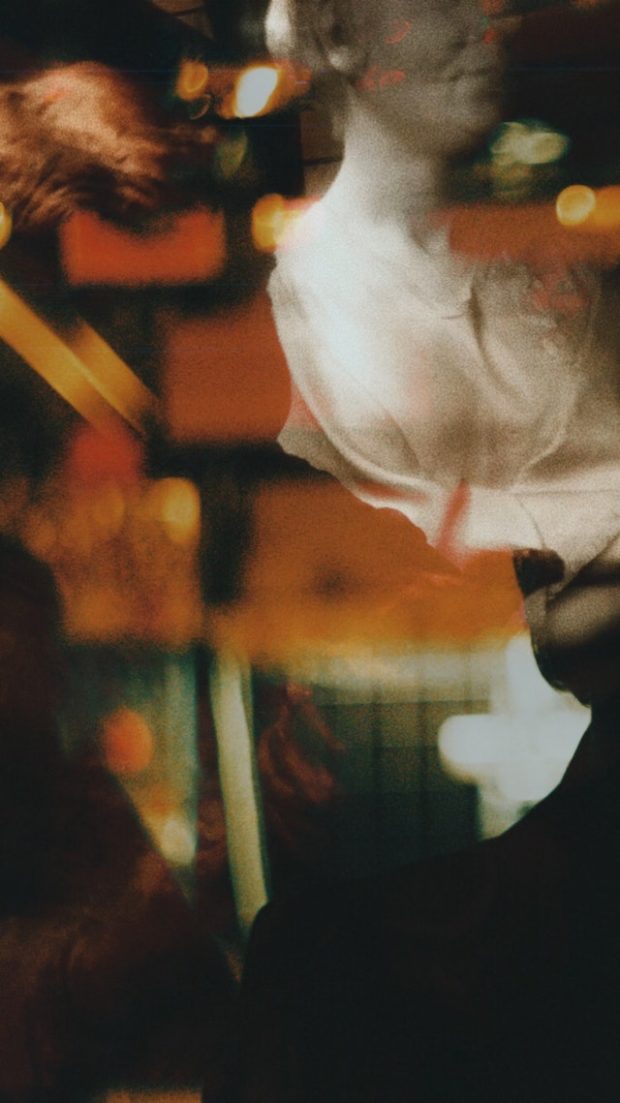You have no items in your cart. Want to get some nice things?
Go shopping
Us? We are dry bread in the mouth, rough on the tongue. Our imperfect faces are hidden away behind soot-stained xanbirs of wooly cloth that used to be white as the foot of the god we serve. They are grey now, speckled and mottled and rotting dry, and hiding our faces. Hiding our mouths and ears and noses and eyes from god’s world. Leaving bare only our foreheads upon which we bear the marks of our beautiful masters. Our only identity.
We recognize you by your footsteps, Master. Hard clack of wood on marble, soft whistle of cloth on stone. Wooden shoe for your left leg, in the image of god’s leg. Cloth wrap for your right, the leg god lost fighting Zohiiru, his second son. Your right leg must be silent; it is god’s reverence. Our own feet are bare. Us blemished who cannot afford wood and cloth cannot risk cursing god by wearing anything else.
“Tofbir.” Follow. You speak the word and we shuffle behind you, paying attention with our ears to the path you take to god’s house. We have not seen god’s house in a long while. We have not seen. Not since our faces became blemished and we last saw the white foot of god. Not since our xanbirs came on and our marks were decided. Not since we lost our names.
The steady rhythm of wood clacking every second step falls silent and we stop in our tracks.
“Cobir tufitarhiru venki no xanbir.” Kneel and remove your xanbir.
We fall on our knees and fumble with the cloth wrapped around our heads. We have never been permitted to touch them except to free our mouths for feeding. It takes a while to find the seam, and then the wrap comes undone all at once.
Breathe. The air is fresher than we have tasted in years.
Hear. That constant muffling of sound, like there is cloth over everything, is gone. Crispness is returned to the world.
See. The room is dim but our eyes water anyway. Light is a memory bent in time’s lens.
Before us is god’s statue. It is the whitest marble stretching upward, six times as tall as any of us, standing on one leg, radiating perfection. The face of god is perfect. Shifting facets of softest stone.
Beside god is you, Master. Made in the image of god. Perfect face. In the background, a little girl is chased by matronly women. They too are perfect. Unlike us. We are rice overboiled without salt, left to cool, and soggy.
You look at all of our faces and note whether the years spent under the xanbirs have improved them. You pick out three of us. Three out of forty. Three whose faces have lost their scars, or their spots, or their acne. Three who have regained perfection.
“Ketkerhi venki no xanbir.” You will no longer wear your xanbir. The words are spoken casually, almost carelessly. For us, they are every spice.
“Trena nori.” The three of you alone.
You walk away to return the three to society and come back with seven new. Four have acne. One has been burned. One has been wounded with a knife. One is just ugly.
Now, there are forty-four of us. And forty-four new xanbirs, white as the foot of the god we serve. And it is the last thing we see.

About Princewill Uchechi
Uchechi Princewill is a fiction writer and medical student at the University of Benin, Nigeria. He writes about living beings, both in reality and fantasy. His work has been published or is forthcoming in The Story Tree Challenge Maiden Anthology, Pikes Peak Writers DREAM Anthology, and Litro Online. He is also a winner of the 2017 CYC Unseen and Unspoken Poetry Competition. He can be found in most spaces @bryanwhoiam




